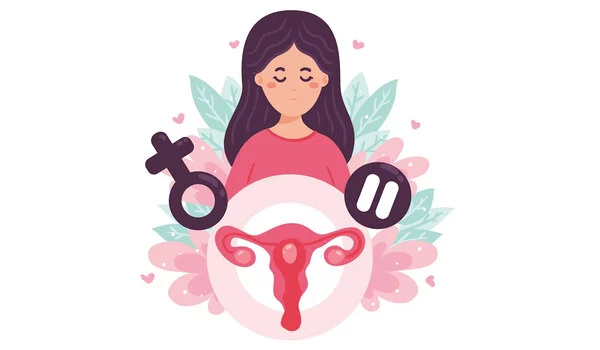It is unfortunate to hear that periods and pregnancy remain taboo topics in women’s football. Research suggests that the stigma around discussing these topics is still prevalent in the sport, with many female footballers feeling uncomfortable discussing their menstrual cycles or pregnancy with coaches, teammates, or medical staff. This lack of open communication can have negative impacts on female athletes’ health and well-being, as they may not receive the support they need during pregnancy or may not feel comfortable seeking medical attention for menstrual-related issues.
Experts in sport and exercise are calling for better period and pregnancy education in women’s football. According to new research conducted at women’s football clubs in six European countries, education about the menstrual cycle, hormonal contraception, and pregnancy is severely lacking.
More than 1,100 players, coaches, and managers from grassroots to elite-level clubs in Bulgaria, England, Finland, France, Poland, and Spain participated in the study, which was led by academics from Staffordshire University. It used an online survey and a series of focus groups to investigate policies, perceptions, and understanding.
Dr. Jacky Forsyth, Associate Professor of Exercise Physiology, explained: “The topic of ovarian hormones and their effects on training and performance, in addition to pregnancy and postpartum, seems to have received scant consideration within any formal coach education courses.
The topic of ovarian hormones and their effects on training and performance, in addition to pregnancy and postpartum, seems to have received scant consideration within any formal coach education courses.
Dr. Jacky Forsyth
“In sport, these topics also come with varying degrees of stigma and silence, as well as being a barrier to gender equality. To address this, we sought best practices from across Europe in order to learn what clubs are doing well, what is effective, and what can be improved. Despite some good practices in individual clubs from various countries, there was a lack of knowledge and understanding about how training, performance, and health are affected. Without the assistance of governing bodies or coach education providers, knowledge was generally left to the individual.”
69% of all participants reported that educational provision on the menstrual cycle was ‘not at all’ provided at their clubs, and while some clubs tracked players’ menstrual cycles, this was inconsistent and varied.
Approaching coaches about the menstrual cycle was identified as a challenge for some players, with one barrier being that ‘the female game is still predominantly coached by males’ and that ‘males won’t understand’. As a result, some players backed each other up, preferring to keep things “between us girls” rather than approaching their coaches.
Similarly, 77% of respondents reported no educational provision for hormonal contraception, while 64% reported no provision for pregnancy education. In addition, only 5% were aware of the club’s policies regarding pregnancy, maternity leave, motherhood, and caring responsibilities/childcare.

The study’s recommendations include hiring more female coaches and formalizing coach education to include research on the menstrual cycle, hormonal contraception, and pregnancy, in order to encourage open dialogue between coaches and athletes. The study is also influencing teaching on Staffordshire University’s Sport and Exercise degrees.
“These findings shed light on the fact that football training and education is still geared toward men’s games,” said co-author Dr. Alex Blackett. Women’s football development appears to be on the surface at the moment, with much more work needed beneath the surface.
“The willingness to have open discussions is so important because, as our paper suggests, there is still a stigma attached to some of these issues. While it’s good that there is this solidarity and players support one another, we sometimes find that pseudo-science principals are perpetuated and so it is important that the correct information and support comes from the top.”
The study was part of the European Women in Sport (E-WinS) project which is funded by the Erasmus+ Sport program and brings together experts from nine universities and sports organizations.
The team at Staffordshire University will now work directly with football clubs in the UK to put some of their findings into practice and E-WinS project partners are producing toolkits that will be freely available online.
Chelsea F.C. Women became the first football club in the world to tailor training to players’ menstrual cycles in 2022, and Sarina Wiegman, England women’s manager, introduced menstrual tracking apps ahead of the team’s victory at the 2022 European Women’s Football Championship. More recently, the women’s teams of Stoke City and West Bromwich Albion announced a switch to colored shorts with their home kit due to player concerns about wearing white during their periods.
“Initially, it is about creating awareness that the menstrual cycle is not just about PMT and feeling moody and bloated,” Dr. Forsyth added. Variations in ovarian hormone levels occur throughout the lifespan, so understanding their effects is critical for the advancement of women’s football.”
“Tracking players’ menstrual cycles, for example, can make a significant difference. For example, performance may be optimized during certain phases of the menstrual cycle, and training may be modified to avoid injury and muscle soreness. Coaches should be knowledgeable about women’s issues, and I hope that this will be incorporated into the FA’s coaching awards because it is clearly needed. Menstrual cycle, hormonal contraception, and pregnancy in women’s football: players, coaches, and managers’ perspectives “is published in the journal Sport in Society.















